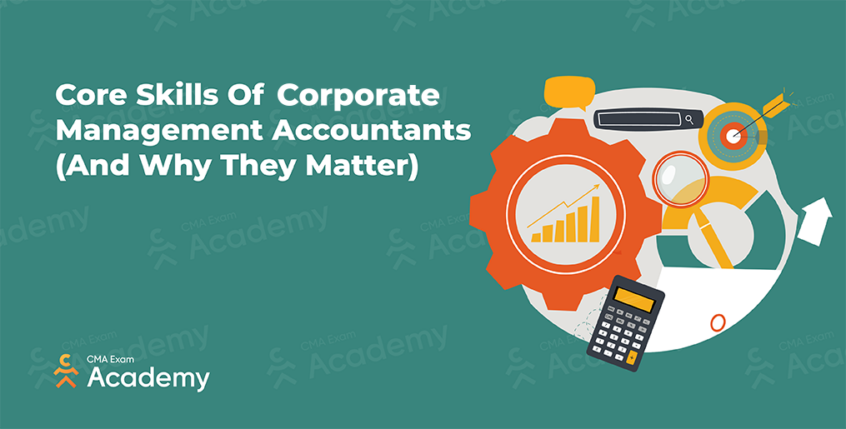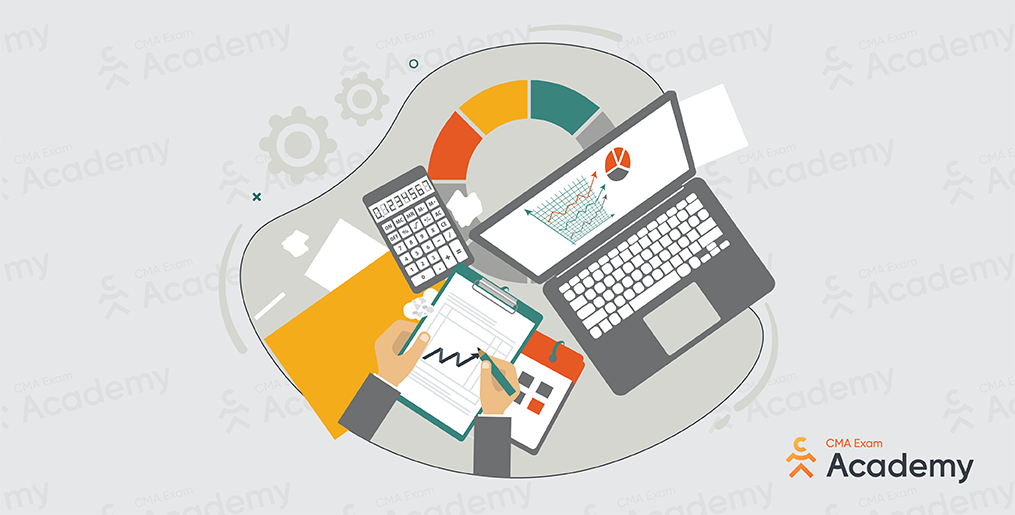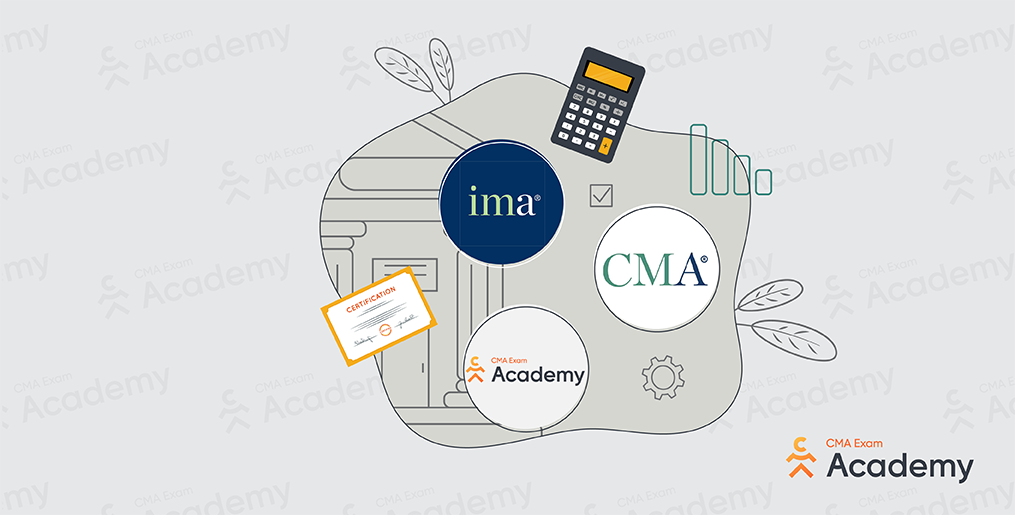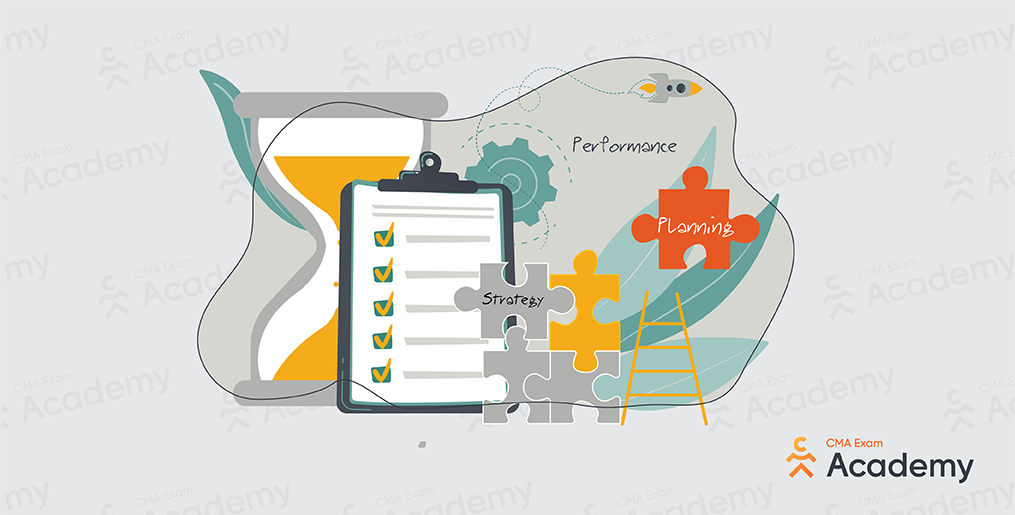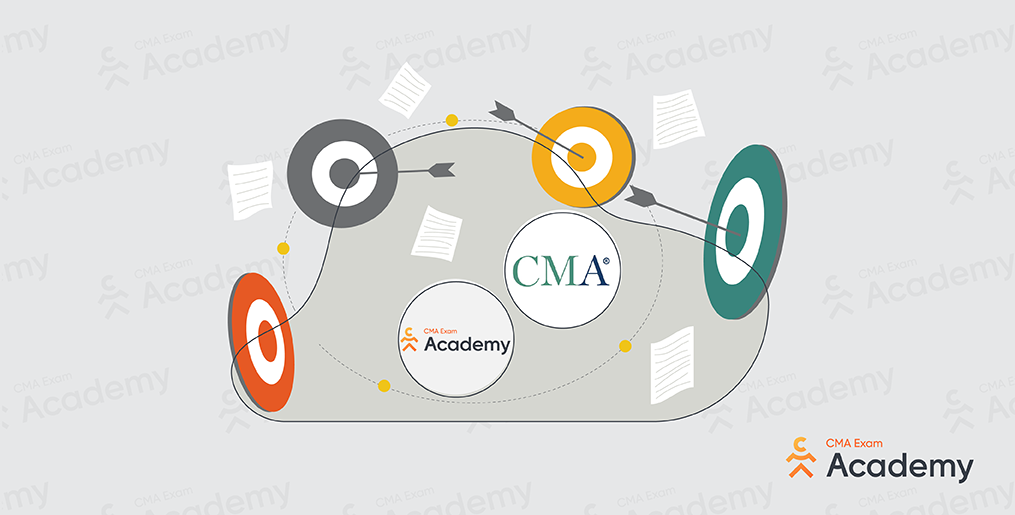Management accountants bring a ton of value to a company. Their knowledge and competencies fill an important role in providing strategic direction, in addition to accounting capabilities.
Certified Management Accountants (CMAs) are in high demand for many roles, from controllers to CFOs to executive leaders, and more. Companies in growth mode hire CMAs primarily because of the core skills management accountants bring to the table.
Read on to learn what management accountants do and how they become qualified to do it. Find out which skills set management accountants apart from the rest, and how becoming a CMA demonstrates your possession of these sought-after abilities.
At the CMA Exam Academy, we accelerate your path toward becoming a CMA, able to tackle all of the tasks below with exceptional skill. Browse our CMA course materials, which come with a 100% exam pass guarantee.
In this article:
- What Do Management Accountants Do?
- Qualifications and Training Required to Be a Management Accountant
- The Six Pillars of Management Accounting
- Most Important Skills for Management Accounting
- How the CMA Credential Helps Acquire All of the Skills Listed Above
What Do Management Accountants Do?
Accounting is one of the world’s oldest professions. Every business needs the basic tasks associated with the accounting function: someone to analyze financial information, oversee transactions, balance books, and more.
Management accounting is about internal affairs, or overseeing the financial information of an organization. This includes internal management of all stakeholders at every level. Above and beyond basic accounting work, management accountants provide strategic direction for a company.
Management accountants work in all kinds of companies, from professional services firms (law, accounting) to retail to manufacturing, and may work in the public or private sector.
Becoming certified as a CMA automatically places you in the category of someone who can partner with leadership on strategic and tactical planning.
Qualifications and Training Required to Be a Management Accountant
To become a Certified Management Accountant, you will need to follow this process:
- Become a member of the IMA
- Pass both parts of the CMA exam
- Fulfill CMA requirements for education and work experience
This is just a quick list – for more detail on what it takes to become a CMA, read: How to Become a CMA: 10 Steps to Getting Certified.
The Six Pillars of Knowledge for Management Accounting
Alright, so let’s get into the core skills of management accountants. There are six pillars of knowledge you’ll need to master in order to occupy a spot of the highest value in an organization.
Here are the key areas of skill you’ll develop to get your CMA certification:
Strategy, Planning, and Performance
There are immense complexities behind the financial decisions companies make. CMAs help from the very earliest stages of crafting or amending strategies around accounting, operations, bookkeeping, projections, and more.
They have in-depth knowledge of a whole array of financial statements and processes and can offer strategic direction to drive best practices.
The natural outcome of a great strategy is that it leads to planning and performance, which are related to tactics and reporting.
Reporting and Control
If your career ambitions as a CMA lie in the controller title, this may be of special interest to you, or an area to really lean into. All CMAs, regardless of the role they end up in, should be excellent advisors for reporting and control.
Controls are key to maintaining the financial health and regulatory compliance of an organization. There are new areas in which controls are being exercised (for instance, ESG), which makes this role especially vital for growth-minded institutions.
Controls must be meticulously structured, then reported on to ensure ethical practices. All of this — financial reporting, planning, performance, and control — must work in coordination to support the strength of a company. CMAs are skilled in all of them.
Technology and Analytics
The CMA exam covers technology. In a tech-first world, it’s important that any leader in any field be tech-savvy, and understand how technology supports business development and growth.
Emerging technology, like machine learning and artificial intelligence, is regularly impacting the way the accounting world operates, and this disruption is unlikely to go away. The good news is that these trends break in favor of CMAs, who get special training and are skilled in technology, data analytics, and how both areas apply to accounting and leadership.
Business Acumen and Operations
CMAs are seen as businesspeople. This is different from a standard certified public accountant (CPA) or similar credential. Beyond just helping with taxes, audits, reconciliations, and other accounting-related tasks, CMAs can inform the broad roadmap for a company.
Business acumen and operations are part of the IMA management accounting competency framework, and the operations part is important too. Regardless of the size of an organization, its ability to succeed relies on interoperability.
An accounting leader who can also speak to operations is a powerful tool to catalyze progress.
Leadership
CMA are uniquely qualified for leadership roles, whether they run an accounting department, hold an executive position, or help steer the direction of a company.
This is yet another differentiator between the CMA and other accounting credentials. Management accountants are often in a position to manage teams, make their voices heard, and impact their organizations.
If you want to have influence, if you want to lead people, and if you have an interest in accounting, the CMA is probably the right certification to pursue. You will naturally be classed as a leader, and CMA skills include this uniquely valuable component.
Professional Ethics and Values
The IMA has ethical principles, all of which are required for people who lead the way in financial decisions. Being honest, fair, objective, and responsible is important. Companies will value team members in any role who embody these traits.
CMAs are trained in ethics and make ethical commitments about how they will act when faced with tough decisions.
All good accountants share these personality traits in some form or another.
Most Important Skills for Management Accounting
What you know (those pillars of knowledge) is a significant factor in your success. What you can do (the skills I’m about to cover here) is equally as important.
Let’s talk tactical.
Financial Analysis
Great management accountants can look at financial analyses and extract all of the relevant and meaningful information. They can separate the signal from the noise.
You have to be spreadsheet savvy, capable of decoding financial data and translating it in a way business leaders understand. This will make you useful in analyzing performance and projecting budgets, identifying business drivers, and uncovering new opportunities for efficiency or growth.
Budgeting and Forecasting
A management accountant brings things back to the bottom line. They’re the ones who know a company’s capital inside and out. They use real numbers to generate financial forecasting. This sheds light on if a company is on track to achieve its goals (or not) and how much flexibility or pivoting is needed in light of current market conditions.
Cost Accounting
Cost accounting is all about the facts. Management accountants will handle quantitative tasks and reports that hold value for leaders, managers, shareholders, and vendors. It’s a brass-tacks business activity that’s imperative for most high-performance companies.
Strategic Planning
You’ve probably read this far because you see that corporate management accountants get to be in the thick of high-energy, high-stakes business endeavors. Management accountants get to weigh in on all kinds of decisions, plugging in the correct numbers, performing the right calculations and accounting ratios, and interpreting data to unlock the potential for precise plans.
Performance Measurement
Corporate management accountants do a lot of future-casting – but don’t forget that evaluating a business as it is today is also part of the mix of skills. Ongoing performance measurement tracks progress in spending, investing, project results, ops, and more.
Risk Management
Businesses that play big risk big. That’s the nature of the game. Corporate management accountants may be a valued voice at the table as a business decides what risks to take (and which ones to avoid). In this role, someone may calculate risk, measure risk, evaluate risk factors, and further the overall goal of minimizing or mitigating risk as much as possible.
Communication
Part of the reason people get a CMA certification is because they want to be a businessperson. It’s a similar dynamic here. Corporate management accountants should be skilled communicators. Why? Because they hold and handle a lot of important information that has to be relayed to several types of stakeholders. Done effectively, raw info becomes rich insights that inform business decisions.
Technology Skills
Every role in accounting has been impacted by technology. That’s a fact. The computing power of finely tuned software systems can maximize the impact of a corporate management accountant. Not to mention making their lives easier and their work more efficient. Bottom line – you have to be comfortable with tech.
Problem-Solving
The further you get in an organization, the more high-level complex ideas you’ll encounter. Management accountants need to work cross-functionally, working with professionals from a range of disciplines to solve real problems.
Ethical Conduct
All accountants need strong ethics. That’s why it’s part of certifications and more. You have almost unparalleled access to sensitive financial and company information. You must tick this box if you want your career to last.
Related: check out my video on the Skills of Management Accountants.
How the CMA Credential Helps Acquire All of the Skills Listed Above
I’ve talked over and over about what CMAs are trained in and what skills they learn and practice in their varied careers. You might wonder how they develop those skills, which is a very good question.
First, the CMA exam. This is the entry point into becoming a CMA. You have to pass it in order to earn your certification.
Preparing for this rigorous exam is one of the ways you will acquire the knowledge and skills to take you forward in your career as a management accountant.
CMA Part One & Part Two Exam Sections
The CMA exam comes in two parts:
The first part covers external financial reporting; planning, budgeting, and forecasting; performance management; cost management; internal controls; and technology and analytics.
The second part covers financial statement analysis; corporate finance; decision analysis; risk management; investment decisions; and professional ethics.
To pass the CMA exam, you’re going to need to know… all of it. It’s a difficult exam, and you need more than a surface-level understanding of the concepts to pass.
As you can see, these exams are vast in terms of the subject matter covered. That’s part of the reason CMAs are in such high demand: if you can pass this test, it’s assumed you have a pretty incredible bank of knowledge and CMA skills to excel in the workplace.
How CMA Exam Academy Can Help
If you are passionate, hungry to advance your career, and determined to succeed, we can help you crush the CMA exam. I’ve helped thousands of people study. Tens of thousands, in fact.
The core skills of management accountants are skills that will serve you well throughout your career. They make you valuable. They make your insights and ideas important. They ensure that you are seen as a leader and that you have the competencies to be a good one.
If you’re ready to start this journey or continue with a plan that will work, get all the support you need with a proven CMA prep course and coaching program: Learn more here.
Questions about what some of these skills look like in the real world? Drop me a comment! I’m always happy to weigh in.
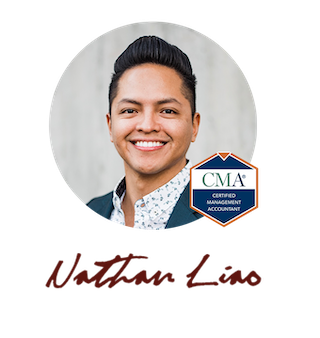
Hi, I’m Nathan Liao (aka the CMA Coach)! For the last 10 years, over 82,000 accounting and finance pros came knocking at my door seeking guidance and help. If you’re also aiming to conquer the CMA exam on your very first try—without wasting away time or money—you’ve found your ultimate guide. Dive in deeper to discover more about me and the dedicated team that powers CMA Exam Academy. Click here and let’s embark on this journey together!

